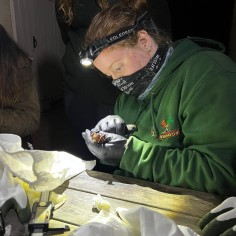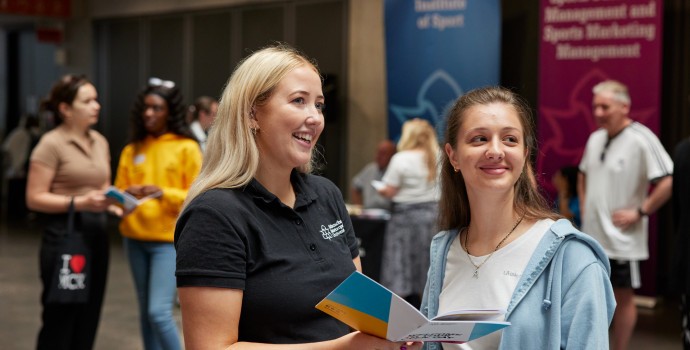
Careers in biology and conservation
A masters degree can help you launch an impactful career where you'll help make a difference in the field of animal behaviour, conservation and zoo studies.
Why study a conservation masters degree?
A conservation or animal behaviour masters degree can unlock a world of rewarding career possibilities. By studying a postgraduate qualification you’ll become a sought-after expert in your field. It could open doors and help you land your dream job, or provide a stepping-stone into a PhD and further research.
Whether you’re in the early stages of your career, or are looking for support in your professional development, we’re dedicated to helping you succeed. Not only will you develop specialist knowledge and be able to evidence this through your own research project, we’ll also help to boost your professional skills and connections to help you feel confident in your career development.
Hear from Dr Martin Jones
Why Manchester Met?
-
Taught by experts
You’ll learn from academics at the forefront of the field, widely recognised for their expertise. The results of their research not only shape our world but also shape your studies — preparing you for the industry of tomorrow.
-
Investing in your future
We’ve invested over £115 million to transform our science and engineering campus into a space to thrive. Our new Dalton Building provides a professional study environment equipped with dynamic learning spaces, world-class teaching and research facilities and collaborative study zones to further prepare you for your future career.
Our campus is also home to one of the UK’s only university-based Amphibian Conservation Research Facility, which works with zoos to determine the best way to conserve amphibians in captivity and halt their ongoing decline.
-
Join a diverse cohort
We’re a supportive community that takes pride in our diverse backgrounds and research interests. Our academic team will get to know you as an individual and tailor their mentorship to your personal development throughout your course.
You’ll learn alongside students with a broad range of backgrounds, nationalities and experiences. You’re not just selecting a course, you’re becoming part of a community committed to driving change. Be prepared to engage, innovate, and lead in a class of like-minded passionate students and staff.
Benefits of studying at Manchester Met
Our partners
Our partners
We work with research institutions, industry partners, national organisations and NGOs worldwide.
As a student, you'll have access to our wide-ranging professional network. These connections could help you source work experience or fieldwork opportunities. They may also become research collaborators.

WWF

Chester Zoo

CAWM

RSPCA

Knowsley Safari

Kenya Wildlife Service
Careers in biology and conservation
Careers in biology and conservation
Our courses open a wide range of specialist careers and possibilities. Here’s a selection.
-
Captive management
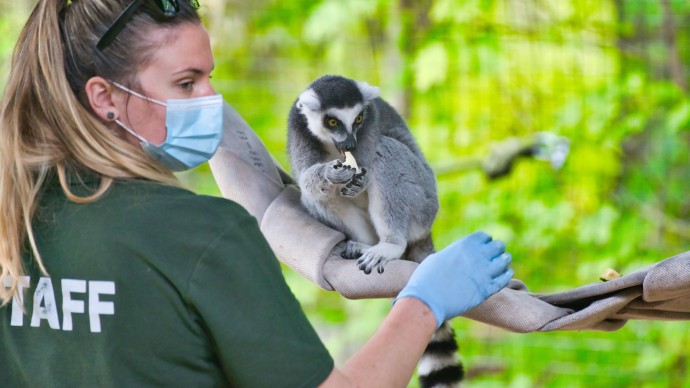 As a senior keeper or researcher you may work in zoos, wildlife rehabilitation centres or rewilding projects. Your work will enhance animal welfare, improve breeding programmes and bridge the gaps between ex situ and in situ conservation.
As a senior keeper or researcher you may work in zoos, wildlife rehabilitation centres or rewilding projects. Your work will enhance animal welfare, improve breeding programmes and bridge the gaps between ex situ and in situ conservation. -
Conservation Biologist
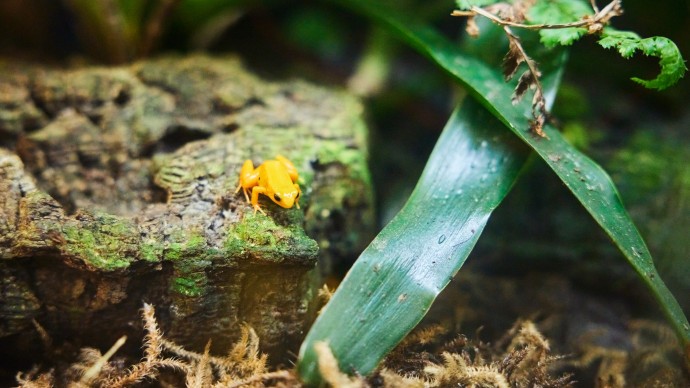 This is an extremely rewarding career that would see you studying and monitoring animal populations. By analysing their behaviour and habitats, you'll develop conservation strategies and contribute to the protection of endangered species.
This is an extremely rewarding career that would see you studying and monitoring animal populations. By analysing their behaviour and habitats, you'll develop conservation strategies and contribute to the protection of endangered species. -
Teacher
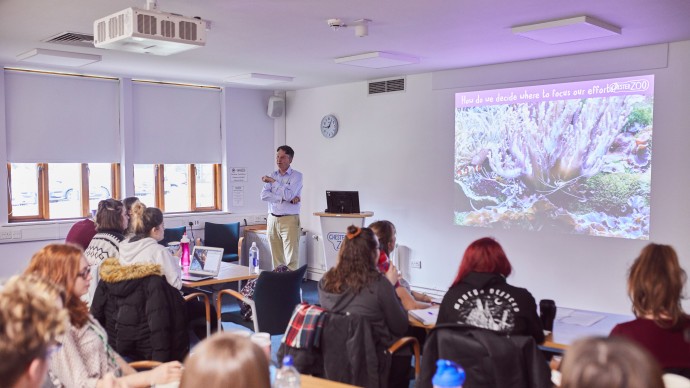 Inspire the next generation by designing and delivering programmes that raise awareness about biology, ecology and conservation. This could be in schools, communities or nature centres.
Inspire the next generation by designing and delivering programmes that raise awareness about biology, ecology and conservation. This could be in schools, communities or nature centres. -
Environmental consultant
 Become an environmental consultant and you’ll guide organisations towards sustainable practice, combining your scientific expertise with strategic thinking. You’ll help companies mitigate their environmental impact and navigate complex regulations.
Become an environmental consultant and you’ll guide organisations towards sustainable practice, combining your scientific expertise with strategic thinking. You’ll help companies mitigate their environmental impact and navigate complex regulations. -
Environmental policy analyst
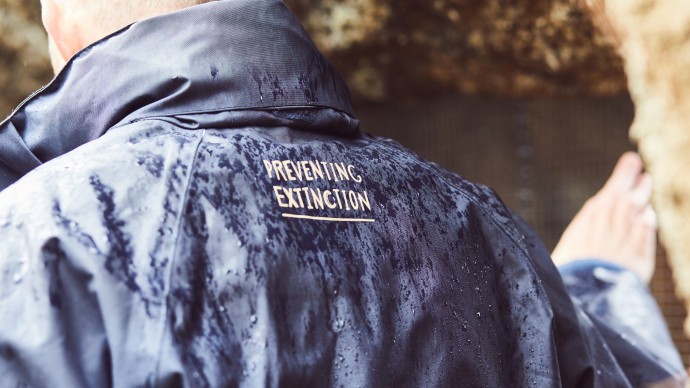 Become an advocate for change and play a vital role in shaping policies that protect our planet’s delicate balance. Using your biology and conservation expertise, you’ll influence decision making at the highest levels.
Become an advocate for change and play a vital role in shaping policies that protect our planet’s delicate balance. Using your biology and conservation expertise, you’ll influence decision making at the highest levels. -
Research scientist
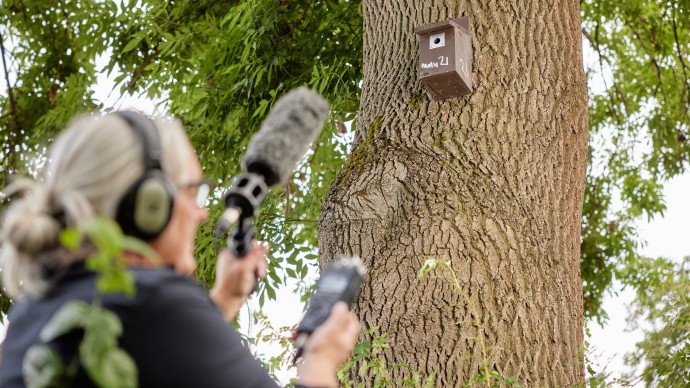 Striving to be at the forefront of change, many students use a masters as a steppingstone to become a PhD researcher. From genetics to biodiversity and behaviour, their contributions help devise new solutions and inform conservation practice.
Striving to be at the forefront of change, many students use a masters as a steppingstone to become a PhD researcher. From genetics to biodiversity and behaviour, their contributions help devise new solutions and inform conservation practice. -
Re-wilding and restoration ecologist
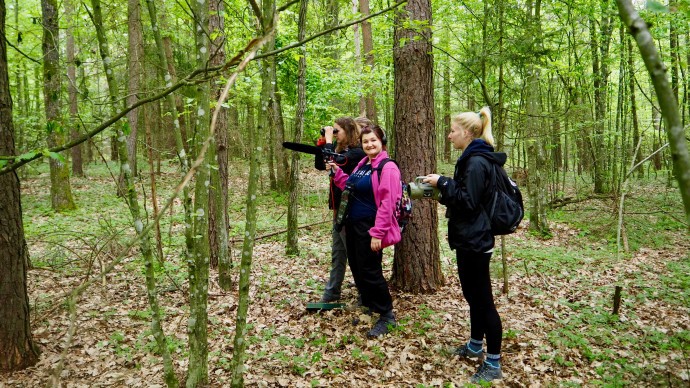 A career in re-wilding and restoration will see you conduct research on the intricate relationships between organisms and their environment, with a focus on rehabilitating damaged ecosystems. Your work will breathe new life into fragile environments.
A career in re-wilding and restoration will see you conduct research on the intricate relationships between organisms and their environment, with a focus on rehabilitating damaged ecosystems. Your work will breathe new life into fragile environments.
Hear from our alumni
Hear from our alumni
The course provided me with so many opportunities. I gained connections within the industry, explored a vast range of research fields, and had endless support from lecturers and university staff. I'm particularly grateful for my placement at Chester Zoo which was facilitated by the University.
Education and Conservation Manager at Wildwood Trust
I carry everything I learned from my time at Chester Zoo in my job today. We learned about stud books, SSP's and habitat design.
Senior Zoologist
I use the skills developed in my masters degree every day, in particular the confidence and level of self-study we were trained for. Having a postgraduate qualification was an essential pre-requisite for getting my jobs at both the RSPCA and as a lecturer.
University lecturer


